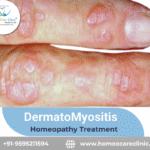Introduction
Food poisoning is an extremely common and frustrating condition that is caused by consumption of contaminated food or water. It is a very common condition, and the symptoms can range from minor irritation to life-threatening illness. Conventional treatment of symptoms with Western medicine is available, but homeopathy will help address the root cause of food poisoning.
Causes of Food Poisoning
Food poisoning can result due to various causes such as:
- Food and water contamination with viruses, parasites, bacteria, or toxins.
- Food Poor hygiene or improper handling
- Food not cooked or improper storage
- Contamination from raw to cooked food
- Consumption of stale, rotten, or spoiled food products.
Symptoms of Food Poisoning
The most common symptoms of food poisoning include nausea, vomiting, diarrhea, abdominal cramps, chills, and fever. Its duration varies from grave to mild depending on the nature of the contaminant and the health condition of a person.
Conventional Medicine’s Approach
In traditional medical practice, the goal is symptom and complication control. Some of the treatments are as follows:
- Fluid rehydration: to prevent dehydration.
- Antiemetics: to reduce nausea and vomiting.
- Antibiotics: for severe infections due to bacteria, although mostly not necessary for viral or even mild infections.
Advantages of Homeopathy
Homeopathy is an essentially safe natural treatment for food poisoning:
- Stimulates self-healing: It works through methods that provoke the body’s natural processes to regain health and remove symptoms.
- Non-toxic: Without side effects and, therefore safe for all age group members from infants to pregnant women and the aged.
- Holistic approach: Considering symptoms and overall health to treat the root cause.
Homeopathic Remedy for Food Poisoning
- Arsenicum Album- For food poisoning with vomiting, diarrhea, restlessness, and anxiety along with weakness mainly due to spoiled food.
- Nux Vomica-preparations resulting from overeating, spicy food, and alcohol. Relieves nausea and vomiting, abdominal pain, and irritability.
- Veratrum Album– serious cases of violent vomiting and diarrhea, cold sweats, and collapse.
- Carbo Vegetabilis-relieves bloats belches, and heaviness after the consumption of fatty food
- China Officinalis – can be used in the treatment of weakness, dehydration, and exhaustion. Also useful when the symptoms aggravate when moved or touched.
Frequently Asked Questions About Homeopathy for Food Poisoning
- Is homeopathy safe with children when suffering from food poisoning?
Yes, homeopathic remedies are safe with children and may be used to treat food poisoning symptoms.
- Is it possible to use homeopathy with other conventional treatments?
Yes, it is possible to use homeopathy along with other conventional treatments to relieve symptoms as well as provide support for natural recovery.
- Are homeopathic remedies useful for all types of food poisoning?
Yes, homeopathy is helpful in many cases of food poisoning because remedies are chosen specially according to the symptoms and causes of the symptoms.
The approach at Homeo Care Clinic would be a holistic patient-centric one towards the management of food poisoning. What the remedies listed here may do is soften the discomfort while curing the root cause. But for this, one must visit a qualified homeopathic practitioner to ascertain an appropriate dosage and duration of treatment. Homeo Care Clinic is well-equipped to help people overcome food poisoning and other maladies by providing customized treatments.
In conclusion, Homeo Care Clinic offers a holistic approach to treating the disease. The remedies mentioned above can treat the underlying causes of the condition and offer relief from the discomfort. However, it is important to consult a qualified homeopathic practitioner for the correct dosage and duration of treatment. Homeo Care Clinic provides comprehensive care for various ailments and offers customized treatment plans based on individual requirements.
To schedule an appointment or learn more about our treatment, please visit our website or give us a call +91 9595211594 Our friendly staff will be happy to assist you. If you’re searching for the best homeopathy doctor, we are here to help.
Follow us on Facebook, Twitter, and Instagram for valuable insights into the world of homeopathy and holistic health.
Facebook – https://www.facebook.com/homeocareclinicpune
Instagram – https://www.instagram.com/homeocareclinic_in
Website – https://www.homeocareclinic.in
Chat with the best homeopathic doctor privately
If you have any queries regarding your disease or any symptoms, Click to send a WhatsApp message. Our best homeopathy doctor will be happy to answer you.
Book an Appointment
If you want to visit our clinic, Click to book an appointment.
Online treatment
If you are a busy professional, or you are living in a remote town or city, with no best homeopathic doctor near you, Clickhere to start an online homeopathic treatment with the world’s exclusive, most experienced, and best homeopathic clinic, managed by Dr. Vaseem Choudhary world-renowned homeopathic doctor expert.






